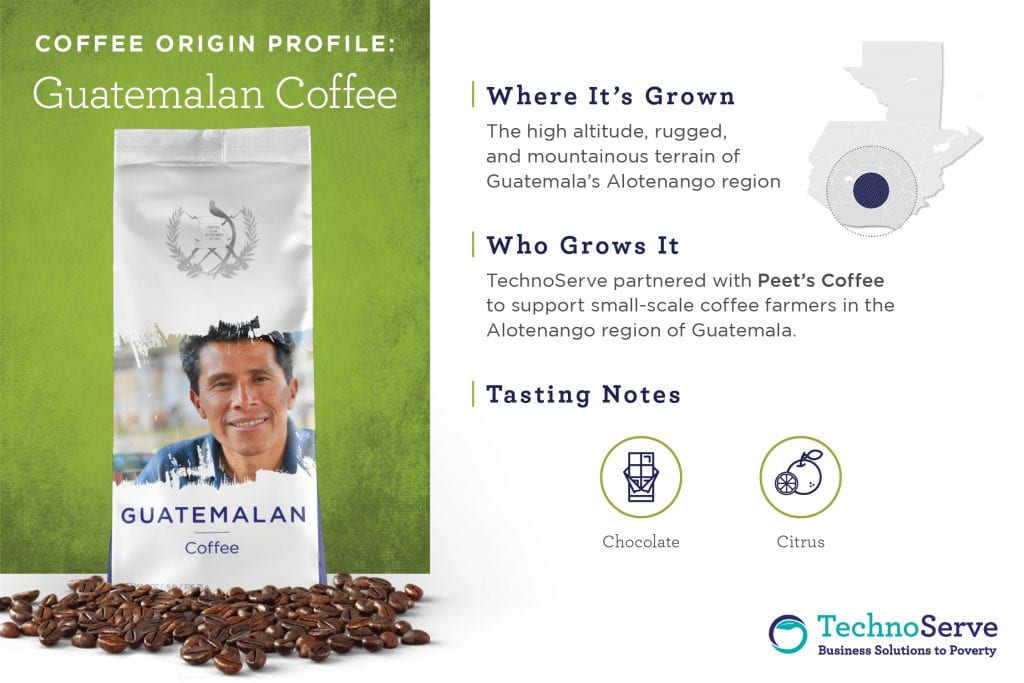Coffee Consumer Spotlight: Guatemalan Coffee
In the next part of our consumer spotlight series, we are highlighting the unique profile of Guatemalan coffee.
TechnoServe partnered with Peet’s Coffee to support small-scale coffee farmers in the Alotenango region of Guatemala.
Where is Guatemalan Coffee Grown?
Rich volcanic soil, high altitudes, and extensive tree cover make Guatemala an ideal location for growing coffee, and it has long been known for producing unique, high-quality arabica. Despite its small size, Guatemala has immense climatic diversity, leading to many distinct types of coffee. In fact, coffee is grown in 20 out of the 22 departments.
In Guatemala, 14 percent of total coffee production is consumed domestically – a number that has been increasing steadily in recent years as the demand for specialty coffee has also increased. The United States continues to be the largest market for Guatemalan coffee, accounting for 39 percent of total exports. Canada is the second largest market at 11 percent.
Coffee farmers here face many challenges, however, including rising production costs, low coffee prices, outbreaks of plant diseases, erratic rainfall, and occasional volcanic eruptions. In 2018, a volcanic eruption destroyed the first coffee harvest in the Acatenango Valley in southern Guatemala. To address these concerns, many coffee farmers are joining cooperatives and diversifying their sources of income by growing additional crops such as avocados and nuts. Yet coffee production still represents a promising path out of poverty for many small-scale farmers in Guatemala.

Who Grows Guatemalan Coffee?
There are approximately 125,000 small farmers in Guatemala who help produce some of the world’s most popular washed arabica coffee. TechnoServe partnered with Peet’s Coffee to support coffee farmers in the Alotenango region in southern Guatemala – teaching agronomy skills that increased yields, improved coffee quality, and strengthened resilience to climatic changes. The agronomy training covered topics such as pruning, mulching, shade tree management, and harvesting. Farmers also learned important business skills, such as accounting, record-keeping, and bookkeeping, which allowed them to run their farms like a successful small business.
Tasting Notes
Guatemalan coffee is often included in blends, but can also be found as a very popular single-origin offering. Because of the country’s vast climatic diversity, tasting notes vary widely depending on the region. In Antigua, one of the most well-known regions, coffee typically has tasting notes of cocoa and citrus, with a bright, sweet flavor and a crisp acidity.
Learn more about TechnoServe’s coffee expertise.




